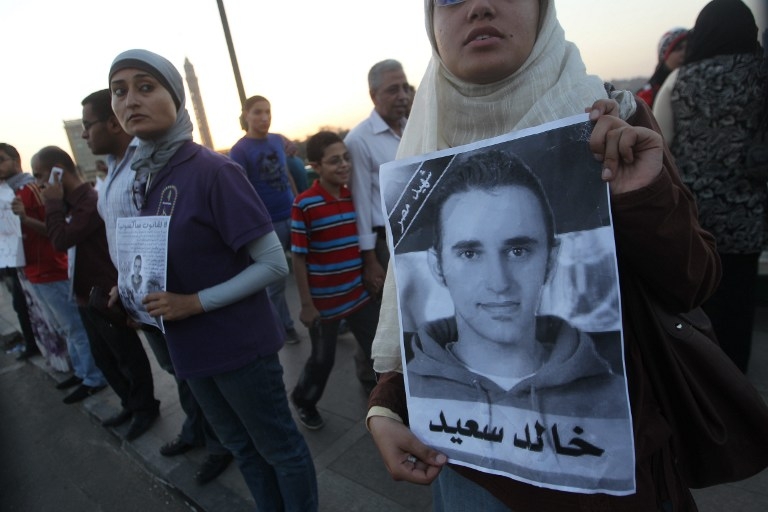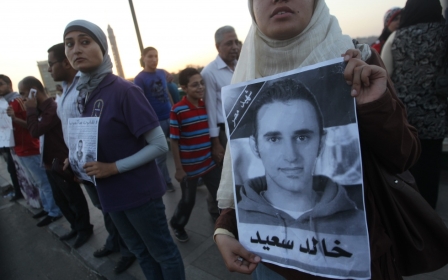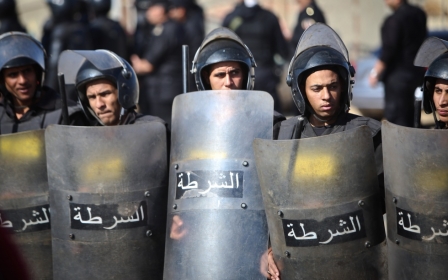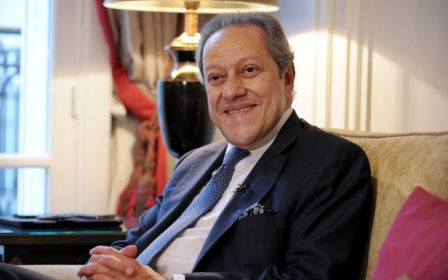Egyptian court upholds jail terms for police who killed Khaled Said

An Egyptian appellate court on Wednesday upheld ten-year jail terms for two policemen convicted of beating a young man to death in Alexandria in 2010 – an incident partly credited with igniting the 2011 uprising that toppled then-president Hosni Mubarak.
Egypt's Court of Cassation, the country's highest judicial appeal body, rejected a second appeal filed by two low-ranking policemen – Mahmoud Salah and Awad Ismail – against the sentences, which were issued one year ago.
Wednesday's court decision renders the verdict enforceable. However, the defendants still have the right to submit a petition to the court challenging the verdict.
Last March, the two policemen were sentenced to ten years each in jail at a maximum-security prison for beating 28-year-old Khaled Said to death in the coastal city of Alexandria in 2010.
Said's murder five years ago was partly credited with igniting Egypt's January 2011 uprising that ended Mubarak's 30-year rule.
On 6 June 2010, Said was dragged out of an Alexandria cafe and beaten to death by the two policemen in Alexandria's Sidi Gaber district.
Officials had later claimed Said had died after choking on a packet of drugs he tried to swallow.
At the time, an autopsy photo of Said's beaten, disfigured face sparked outrage against the heavy-handed practices often employed by Mubarak's police state.
After his death, Egyptian IT consultant Wael Ghonim set up the "We are all Khaled Said" Facebook page which became a rallying point for protesters.
New MEE newsletter: Jerusalem Dispatch
Sign up to get the latest insights and analysis on Israel-Palestine, alongside Turkey Unpacked and other MEE newsletters
Middle East Eye delivers independent and unrivalled coverage and analysis of the Middle East, North Africa and beyond. To learn more about republishing this content and the associated fees, please fill out this form. More about MEE can be found here.




